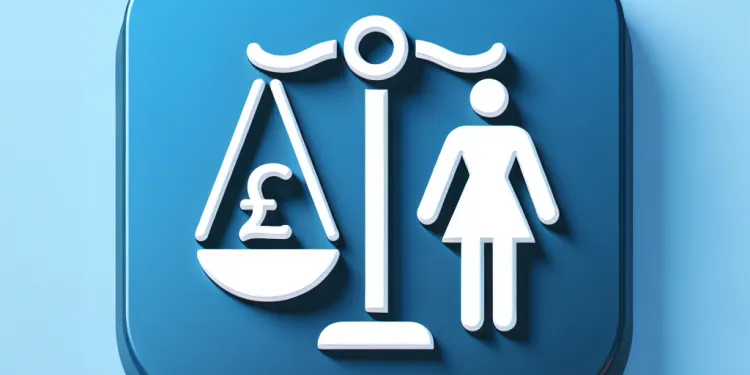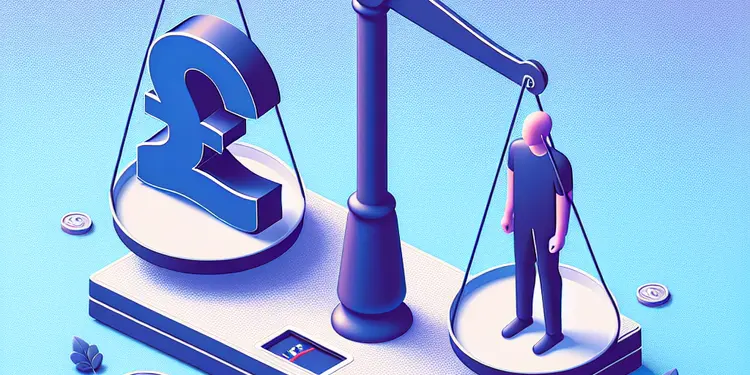
Find Help
More Items From Ergsy search
-

Can non-diabetic individuals use Ozempic for weight loss?
Relevance: 100%
-

Can Ozempic be used for weight loss?
Relevance: 64%
-

Will insurance cover Ozempic for weight loss?
Relevance: 63%
-

How does Ozempic help with weight loss?
Relevance: 63%
-

What is the typical dosage of Ozempic for weight loss?
Relevance: 57%
-

Has Ozempic been approved for weight loss?
Relevance: 57%
-

Do lifestyle changes need to accompany Ozempic for weight loss?
Relevance: 54%
-

Are there any clinical trials supporting Ozempic for weight loss?
Relevance: 53%
-

How long does it take to see weight loss results with Ozempic?
Relevance: 52%
-

Can Ozempic be used for weight loss?
Relevance: 48%
-

Are there long-term solutions to maintain weight loss after stopping Ozempic or Wegovy?
Relevance: 45%
-

If I stop Ozempic or Wegovy jabs, will I regain weight?
Relevance: 45%
-

Is it common to regain weight after stopping Wegovy or Ozempic?
Relevance: 43%
-

Will I regain all the weight I lost if I stop Ozempic or Wegovy?
Relevance: 43%
-

Can Wegovy help with weight loss in non-obese individuals?
Relevance: 42%
-

Do I need a prescription for weight loss jabs?
Relevance: 38%
-

What should I do if I want to stop taking Ozempic or Wegovy but keep the weight off?
Relevance: 38%
-

Can Ozempic be used in conjunction with other weight-loss medications?
Relevance: 38%
-

What is Ozempic?
Relevance: 37%
-

Is Ozempic a form of insulin?
Relevance: 37%
-

What is Ozempic?
Relevance: 37%
-

Weight Loss Surgery
Relevance: 36%
-

Can everyone use weight loss jabs as a method for weight loss?
Relevance: 36%
-

How does Ozempic work?
Relevance: 36%
-

Will I have to take weight loss jabs for life?
Relevance: 36%
-

What happens if I stop taking Ozempic or Wegovy?
Relevance: 36%
-

What are the side effects of Ozempic?
Relevance: 35%
-

What are the common side effects of Ozempic?
Relevance: 35%
-

Is there a risk of hair loss with weight loss drugs?
Relevance: 35%
-

Do weight loss jabs interact with other medications?
Relevance: 35%
-

What are common side effects of Ozempic?
Relevance: 34%
-

Is Ozempic safe for everyone to use?
Relevance: 34%
-

Can lifestyle changes alone sustain weight loss achieved with Ozempic or Wegovy?
Relevance: 34%
-

Are there any long-term effects of using Ozempic?
Relevance: 34%
-

How does Ozempic affect blood sugar levels?
Relevance: 34%
-

Are there any serious risks associated with Ozempic?
Relevance: 34%
-

Are weight loss jabs effective for everyone?
Relevance: 34%
-

How do weight loss jabs work?
Relevance: 34%
-

Is there a risk of dependence on weight loss jabs?
Relevance: 33%
-

Is weight loss a possible benefit of Mounjaro?
Relevance: 33%
Introduction to Ozempic
Ozempic, known scientifically as semaglutide, is a medication commonly prescribed to manage blood sugar levels in individuals with type 2 diabetes. Its primary function is to mimic the hormone glucagon-like peptide-1 (GLP-1), which stimulates insulin production and reduces glucagon secretion. This action helps to stabilize blood sugar levels. However, beyond its proven role in diabetes management, Ozempic has garnered attention for its potential benefits in weight loss.
How Ozempic Affects Weight
The medication works by slowing gastric emptying, reducing appetite, and promoting a feeling of fullness. These effects have led to significant weight loss in some diabetic patients using Ozempic, prompting interest in its off-label use for weight management in non-diabetic individuals. Clinical trials have shown that semaglutide can lead to greater weight loss compared to a placebo, which has intrigued both medical professionals and those seeking weight-loss solutions.
Ozempic for Non-Diabetic Weight Loss
In the UK, the use of Ozempic for weight loss in non-diabetic individuals remains an off-label use, meaning it is not officially approved for this purpose. However, the drug has been prescribed in some cases to assist with weight loss due to its unique action in reducing appetite and caloric intake. It is crucial to note that Ozempic for weight loss should only be considered for those who have not found success with traditional weight loss methods such as diet and exercise.
Potential Risks and Side Effects
Like any medication, using Ozempic for weight loss carries potential risks and side effects. Common adverse effects include nausea, vomiting, diarrhoea, and constipation. In some instances, individuals may experience more serious effects such as pancreatitis or alterations in kidney function. It is essential for anyone considering Ozempic for weight loss to consult with a healthcare professional to thoroughly discuss these potential risks.
Regulations and Recommendations
In the UK, the Royal College of General Practitioners and NHS guidelines emphasize the importance of evidence-based treatments. While Ozempic’s main indication remains the management of type 2 diabetes, ongoing research and trials are evaluating its efficacy and safety for weight loss in non-diabetic populations. Healthcare professionals are likely to recommend alternative, approved weight loss treatments before considering off-label prescriptions of Ozempic.
Conclusion
While Ozempic has shown promise for weight loss, it is essential for non-diabetic individuals in the UK to rely on professional medical guidance before usage. The potential benefits must be carefully weighed against the risks, and any treatment plan should be part of a broader strategy including lifestyle modifications. With science advancing rapidly, future approvals and recommendations may further clarify the role of Ozempic in weight management.
Introduction to Ozempic
Ozempic is a medicine. Its scientific name is semaglutide. Doctors give it to people with type 2 diabetes. It helps control sugar levels in the blood. Ozempic works like a natural body hormone called GLP-1. This hormone helps make insulin and lowers another hormone called glucagon. By doing this, it helps keep blood sugar steady. Recently, people noticed that Ozempic might also help with losing weight.
How Ozempic Affects Weight
Ozempic can slow down how fast food leaves the stomach. It also makes people feel less hungry and feel full for longer. Some people with diabetes lost a lot of weight using Ozempic. This made doctors and others interested in its use for weight loss even for those without diabetes. Tests showed that people lost more weight with Ozempic than with a fake pill (called a placebo).
Ozempic for Non-Diabetic Weight Loss
In the UK, using Ozempic for weight loss if you do not have diabetes is not officially approved. This is called "off-label" use. But some doctors might still give it to people to help lose weight if other methods like diet and exercise did not work. It is important to only use Ozempic for weight loss if a doctor says it is okay.
Potential Risks and Side Effects
All medicines can have side effects and risks. Ozempic can cause feeling sick, throwing up, diarrhea, or constipation. Sometimes, it can cause serious problems like issues with the pancreas or kidneys. People should always talk to a doctor before using Ozempic for weight loss to make sure it is safe for them.
Regulations and Recommendations
In the UK, health experts say treatments should be based on good evidence. Right now, Ozempic is mainly for managing diabetes. Studies are still looking at how safe and good it is for weight loss in people without diabetes. Doctors often suggest other approved ways to lose weight before considering Ozempic for weight loss.
Conclusion
Ozempic might help with losing weight, but people without diabetes in the UK should ask a doctor first. It is important to balance the benefits and risks. Any plan for using Ozempic should also include changes in habits, like better eating and more exercise. As research moves forward, we might know more about how Ozempic can be used for managing weight.
Frequently Asked Questions
What is Ozempic?
Ozempic is a prescription medication primarily used to improve blood sugar control in adults with type 2 diabetes. It is a GLP-1 receptor agonist.
Can non-diabetic individuals use Ozempic for weight loss?
Ozempic is not approved for weight loss in non-diabetic individuals, though weight loss can be a side effect of its use.
How does Ozempic cause weight loss?
Ozempic can lead to weight loss by reducing appetite, slowing stomach emptying, and promoting a feeling of fullness.
Is Ozempic safe for non-diabetics?
The safety of Ozempic for non-diabetics has not been well established as it is intended for type 2 diabetes treatment.
What are the potential side effects of using Ozempic?
Common side effects include nausea, vomiting, diarrhea, abdominal pain, and potential risk of thyroid tumors.
Is it legal to prescribe Ozempic for weight loss?
Prescribing Ozempic for weight loss would be considered off-label use, which some healthcare providers may consider in certain cases.
Should I take Ozempic for weight loss without a doctor's prescription?
You should not take Ozempic without a healthcare provider's prescription and guidance due to potential risks and side effects.
Are there other medications like Ozempic approved for weight loss?
Yes, there are GLP-1 receptor agonists like Saxenda (liraglutide) that are approved for weight management.
What should non-diabetics consider before using Ozempic for weight loss?
Non-diabetics should consider potential side effects, risks, and consult with healthcare providers before using Ozempic for weight loss.
How effective is Ozempic for weight loss in non-diabetics?
While some individuals experience weight loss, Ozempic's effectiveness for this purpose in non-diabetics isn't well studied.
What is the recommended dosage of Ozempic for weight loss in non-diabetics?
There is no recommended dosage for weight loss in non-diabetics as Ozempic is not approved for this use.
Are lifestyle changes important when taking Ozempic for weight loss?
Yes, lifestyle changes such as diet and exercise are crucial for achieving weight loss and maintaining health.
What should I do if I experience side effects while using Ozempic?
If you experience side effects, you should contact your healthcare provider to discuss your symptoms and potential adjustments.
Can Ozempic be used alongside other weight loss medications?
Using Ozempic with other weight loss medications should only be done under the supervision of a healthcare provider.
Are there specific dietary recommendations while using Ozempic?
No specific diet is required, but a healthy, balanced diet can enhance weight loss results when using Ozempic.
How long does it take to see weight loss results with Ozempic?
Weight loss results can vary, with some individuals noticing changes within a few weeks and others taking longer.
Can Ozempic improve other health markers besides weight?
Ozempic may improve markers such as blood sugar levels, but these effects are more related to its use in diabetic patients.
What is the mechanism of action of Ozempic?
Ozempic works by mimicking the incretin hormone GLP-1, which increases insulin secretion, decreases glucagon levels, and slows gastric emptying.
Is medical supervision necessary when using Ozempic for weight loss?
Yes, medical supervision is essential due to potential side effects and to ensure safe and effective use.
What alternatives exist for weight loss besides medication?
Alternatives include dietary changes, increased physical activity, behavioral therapy, and surgical options in some cases.
What is Ozempic?
Ozempic is a medicine. It helps people with diabetes. Diabetes is a sickness where your body cannot control sugar well. This medicine helps to keep the sugar levels in your blood right.
Here is a tip to help understand:
- Ask someone you trust, like a family member, to explain it to you.
- Use apps on phones or tablets that read out loud to help learn.
Ozempic is medicine that doctors give to help grown-ups with type 2 diabetes. It helps keep their blood sugar steady. Ozempic works on special parts of the body called GLP-1 receptors.
To make reading easier, you can:
- Read one sentence at a time.
- Use a ruler or your finger to follow the words.
- Ask someone for help if some words are hard to understand.
Can people who do not have diabetes use Ozempic to lose weight?
Ozempic is a medicine. It is usually for people with diabetes. Some people think it might help with losing weight.
Before using Ozempic, talk to a doctor. The doctor can tell if it is safe for you. It is important to use medicine the right way.
You can also try other ways to lose weight. Eating healthy foods and exercising can help. A doctor or a dietitian can give you advice.
If you need help understanding this, ask someone you trust. They can explain it to you.
Ozempic is a medicine that is not meant for losing weight in people who don’t have diabetes. But, sometimes people might lose weight when they take it.
How does Ozempic help you lose weight?
Ozempic is a type of medicine. It can help you lose weight. Here's how it works:
1. Ozempic makes you feel less hungry. You might not eat as much food.
2. It helps your body use food better.
If you need help with reading, ask someone to read with you. You can also use an app that reads text out loud.
Ozempic can help you lose weight. It works by making you feel less hungry, slowing down how fast your food leaves your stomach, and helping you feel full.
Is Ozempic safe for people without diabetes?
People use Ozempic to help control their blood sugar. Some people who do not have diabetes want to take it. If you are thinking about using Ozempic and you do not have diabetes, talk to a doctor first. They can tell you if it is safe for you.
Doctors know a lot about Ozempic. They can help you understand if you can use it safely. Always ask a doctor before trying new medicine. They can help you make the right choice.
It might help to write down your questions before talking to the doctor. You can also bring a friend or family member to help you listen. That way, you feel supported and remember everything.
Ozempic is made for people with type 2 diabetes. It is not clear if it is safe for people without diabetes to use Ozempic.
What can happen if you take Ozempic?
Here are some things that might happen when you take Ozempic:
- You might feel sick in your tummy.
- You could get a headache.
- You might feel dizzy.
- Sometimes you could feel tired.
- Your skin might feel itchy.
If you feel worried, talk to a doctor or a nurse. They can help you. You can also ask a friend or family member for support. It's always good to have someone with you to make things easier.
Common side effects are feeling sick, throwing up, runny tummy, tummy ache, and a small chance of getting lumps in the throat.
Can a doctor give Ozempic for losing weight?
Here is some information to help you understand:
- Ozempic is a medicine that helps some people with diabetes.
- It can also help some people lose weight.
- Doctors might give Ozempic to help with weight loss. This is called "off-label" use.
- It is important to talk to a doctor about taking Ozempic safely.
Here are some things you can do:
- Ask your doctor questions if you are confused.
- Use pictures or charts if they help you understand better.
- Bring someone with you to your doctor’s appointment for support.
Doctors sometimes give Ozempic to help people lose weight. This is not the usual use, but some doctors might do it in special cases.
Is it safe to take Ozempic to lose weight without asking a doctor?
You should only take Ozempic if a doctor says you can. This is because it can have risks and side effects.
Are there other medicines like Ozempic that help people lose weight?
Yes, there are medicines like Saxenda (liraglutide) that can help with weight loss.
What to think about before using Ozempic for weight loss if you don't have diabetes
If you don't have diabetes and you want to use Ozempic to lose weight, you should think about the side effects and risks. It’s important to talk to your doctor or a healthcare worker first.
Does Ozempic help people lose weight if they don't have diabetes?
Let's see how well Ozempic works for people who want to lose weight but do not have diabetes. Ozempic is a medicine that some people use to help them lose weight.
Here are some tips that might help:
- Talk to a doctor before using Ozempic.
- Use pictures or videos to understand more about the medicine.
- Ask someone to explain if there are things you don't understand.
Some people lose weight when they take Ozempic. But we don't know for sure if Ozempic helps people who don't have diabetes lose weight.
How much Ozempic should a person who doesn't have diabetes take to lose weight?
Doctors do not have a safe amount of Ozempic to help people lose weight if they do not have diabetes. Ozempic is not meant for losing weight.
Do you need to change your habits when using Ozempic to lose weight?
If you are taking Ozempic to help you lose weight, it is important to also make some changes in your daily habits. These changes can help you be healthier and make the medicine work better.
Eating healthy foods, like fruits and vegetables, and not eating too much junk food can help. Try to be active every day. This could mean going for a walk, playing outside, or doing a fun sport.
Ask for help if you need it. Family, friends, or your doctor can give you support and advice. You can also keep a diary to track your food and exercise. This can help you stay on track and see how well you are doing.
Remember, making small changes step by step can lead to big differences in your health.
Yes, changing how you eat and move is very important for losing weight and staying healthy.
What if I feel unwell with Ozempic?
If you feel sick or have problems after using Ozempic, follow these simple steps:
- Stay Calm: It's okay to feel worried, but try to stay calm.
- Tell Someone: Talk to a grown-up you trust, like a family member or carer.
- Call a Doctor: Ask a doctor or nurse for help. They know what to do.
- Write It Down: Keep track of how you feel. Writing can help you remember.
For extra support, you can try:
- Talking Apps: Use apps that read out loud to help you understand.
- Picture Helpers: Draw pictures to show what you're feeling.
Remember, asking for help is a good thing!
If you feel unwell, tell your doctor. They can help you feel better and make a plan just for you.
Can you take Ozempic with other weight loss medicines?
If you want to use Ozempic with other weight loss medicines, make sure to talk to your doctor first. They will help keep you safe.
What should I eat when taking Ozempic?
You don't have to follow a special diet, but eating healthy food can help you lose more weight if you are taking Ozempic.
When will I see weight loss with Ozempic?
When you take Ozempic, it might take a little time to see changes in your weight. Here are some things to help you:
- Be patient. Weight change can be slow.
- Talk to your doctor. They can give you advice.
- Eat healthy food and move your body.
- Write down changes you notice. This can help you track progress.
Everyone is different, so results can vary. Stay positive and keep going!
People lose weight at different speeds. Some people see changes in a few weeks. Other people take more time to see changes.
Can using Ozempic help with other health things besides losing weight?
Ozempic can help make blood sugar levels better. This is because it is used for people with diabetes.
How Does Ozempic Work?
Ozempic helps control blood sugar.
It makes your body use insulin better. Insulin is a hormone. It helps sugar go into your cells for energy.
Ozempic also makes you feel full after eating, so you might eat less.
Support Tips: Use pictures or videos to learn more. Talk with your doctor or nurse if you have questions.
Ozempic is a medicine that helps your body use sugar better. It acts like a hormone called GLP-1. This means it helps your body make more insulin, lowers another hormone called glucagon, and makes food move slower in your stomach.
If you find reading hard, you can use audiobooks or text-to-speech apps to listen instead. Highlighters can also help you pick out important words.
Do you need a doctor's help when using Ozempic to lose weight?
When you use Ozempic to help lose weight, it is important to talk with a doctor. They can make sure it is safe for you.
Tips:
- Always check with your doctor before starting Ozempic.
- Doctors help you use it the right way.
- They can watch for any side effects.
Yes, it is important to have a doctor help you. This is because there might be side effects. A doctor makes sure the medicine is safe and works well.
What other ways can you lose weight without medicine?
You can try different things to help. You can change what you eat, move your body more, talk to a therapist, or sometimes have surgery.
Useful Links
Have you found an error, or do you have a link or some information you would like to share? Please let us know using the form below.
-->
This website offers general information and is not a substitute for professional advice.
Always seek guidance from qualified professionals.
If you have any medical concerns or need urgent help, contact a healthcare professional or emergency services immediately.
Some of this content was generated with AI assistance. We’ve done our best to keep it accurate, helpful, and human-friendly.
- Ergsy carfully checks the information in the videos we provide here.
- Videos shown by Youtube after a video has completed, have NOT been reviewed by ERGSY.
- To view, click the arrow in centre of video.
- Most of the videos you find here will have subtitles and/or closed captions available.
- You may need to turn these on, and choose your preferred language.
- Go to the video you'd like to watch.
- If closed captions (CC) are available, settings will be visible on the bottom right of the video player.
- To turn on Captions, click settings .
- To turn off Captions, click settings again.
More Items From Ergsy search
-

Can non-diabetic individuals use Ozempic for weight loss?
Relevance: 100%
-

Can Ozempic be used for weight loss?
Relevance: 64%
-

Will insurance cover Ozempic for weight loss?
Relevance: 63%
-

How does Ozempic help with weight loss?
Relevance: 63%
-

What is the typical dosage of Ozempic for weight loss?
Relevance: 57%
-

Has Ozempic been approved for weight loss?
Relevance: 57%
-

Do lifestyle changes need to accompany Ozempic for weight loss?
Relevance: 54%
-

Are there any clinical trials supporting Ozempic for weight loss?
Relevance: 53%
-

How long does it take to see weight loss results with Ozempic?
Relevance: 52%
-

Can Ozempic be used for weight loss?
Relevance: 48%
-

Are there long-term solutions to maintain weight loss after stopping Ozempic or Wegovy?
Relevance: 45%
-

If I stop Ozempic or Wegovy jabs, will I regain weight?
Relevance: 45%
-

Is it common to regain weight after stopping Wegovy or Ozempic?
Relevance: 43%
-

Will I regain all the weight I lost if I stop Ozempic or Wegovy?
Relevance: 43%
-

Can Wegovy help with weight loss in non-obese individuals?
Relevance: 42%
-

Do I need a prescription for weight loss jabs?
Relevance: 38%
-

What should I do if I want to stop taking Ozempic or Wegovy but keep the weight off?
Relevance: 38%
-

Can Ozempic be used in conjunction with other weight-loss medications?
Relevance: 38%
-

What is Ozempic?
Relevance: 37%
-

Is Ozempic a form of insulin?
Relevance: 37%
-

What is Ozempic?
Relevance: 37%
-

Weight Loss Surgery
Relevance: 36%
-

Can everyone use weight loss jabs as a method for weight loss?
Relevance: 36%
-

How does Ozempic work?
Relevance: 36%
-

Will I have to take weight loss jabs for life?
Relevance: 36%
-

What happens if I stop taking Ozempic or Wegovy?
Relevance: 36%
-

What are the side effects of Ozempic?
Relevance: 35%
-

What are the common side effects of Ozempic?
Relevance: 35%
-

Is there a risk of hair loss with weight loss drugs?
Relevance: 35%
-

Do weight loss jabs interact with other medications?
Relevance: 35%
-

What are common side effects of Ozempic?
Relevance: 34%
-

Is Ozempic safe for everyone to use?
Relevance: 34%
-

Can lifestyle changes alone sustain weight loss achieved with Ozempic or Wegovy?
Relevance: 34%
-

Are there any long-term effects of using Ozempic?
Relevance: 34%
-

How does Ozempic affect blood sugar levels?
Relevance: 34%
-

Are there any serious risks associated with Ozempic?
Relevance: 34%
-

Are weight loss jabs effective for everyone?
Relevance: 34%
-

How do weight loss jabs work?
Relevance: 34%
-

Is there a risk of dependence on weight loss jabs?
Relevance: 33%
-

Is weight loss a possible benefit of Mounjaro?
Relevance: 33%


